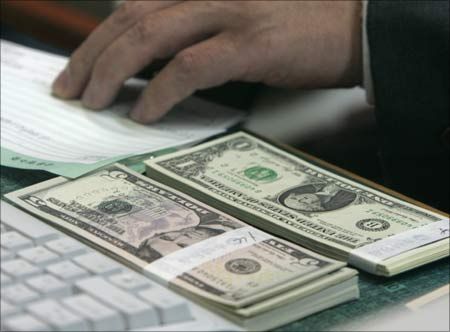
If the Make in India campaign is to succeed, more attention needs to be focused on what is ailing the country’s exports sector, rues AK Bhattacharya, Editor, Business Standard
The significance of an exports decline for the 14th consecutive month does not seem to have fully dawned on everyone in the government.
The tendency so far has been to blame it all on the world trade environment.
Globally, exports are slowing and economic growth in major markets for Indian goods has taken a hit.
The argument seems to be that there is little that anybody can do about India’s falling exports.
And that once the global economic environment improves and the markets for Indian goods start reviving, India’s exports too will roar back with the kind of double-digit growth that they witnessed till a few years ago.
This is worse than complacency or what might be described as market fatalism.
Consider the absolute numbers of India’s declining exports in the last few months.
In January 2016, they were estimated at $21 billion.
A year ago in January 2015, exports fetched foreign exchange worth $24.39 billion and two years ago in the same month of 2014, the value of exports was $26.75 billion.
In other words, India’s monthly exports in January have seen a drop of 21 per cent in the last two years.
Worse, exports continue to fall even on a lower base.
It’s true that monthly imports too have fallen by a similar margin, causing no undue pressure on India’s trade account.
On the contrary, the trade deficit has actually shrunk from what it used to be a year or two ago.
This, however, is of little comfort as falling exports -- apart from having a deleterious impact on industrial growth -- can be a significant dampener for the Modi government’s much-hyped Make in India campaign.
If the Make in India campaign is to succeed, more attention needs to be focused on what is ailing the country’s exports sector.
Remember that a booming exports sector can also help find jobs for millions of young Indians who are entering the employment market every year.
So, what can the government do in such a situation?
First, it must recognise that India’s exports sector is in a crisis. Recognising it as such is the first task.
Even as smaller Asian countries like Bangladesh and Vietnam are growing their exports, Indian exports are declining.
This should make the government sit up and assess what those countries or their exporters have done which is giving them higher exports even in the current situation of a slowing world economy, and what the imperatives for India and Indian exporters should be to overcome a similar challenge.
The second important task would be to recognise that the role of the commerce ministry in promoting exports is critical -- but it cannot hope to perform the desired job in the same way it could do during the licence-permit era.
The commerce ministry does not have too many levers of policy control in today’s liberalised economic environment by which it could make a material difference to India’s exports performance.
Instead, it can function as a facilitator for exporters by helping them overcome the many problems they face while dealing with other ministries and agencies.
Could the commerce ministry work closely with other ministries in charge of the railways, roads, ports, Customs and even labour to resolve the exporters’ day-to-day problems that could come in the way of expeditious shipment of goods?
An equally important task for the ministry would be to work with Indian embassies abroad and help Indian exporters identify potential markets.
Perhaps the commerce ministry has already begun liaising with other departments and ministries in the Union government to help India’s exporters.
But given the steep and consistent decline in exports, it is time the ministry set up a permanent inter-ministerial body to monitor exports and remove the bottlenecks that come in their way.
Indeed, the time may be ripe for setting up a Cabinet committee on exports which could be headed by the prime minister.
Until some years ago, a Cabinet committee on exports was part and parcel of the Union government’s economic policy machinery.
That body is no longer in existence.
The crisis on the exports front has reached a point that it is perhaps necessary to revive it.
There is an added advantage of having an inter-ministerial body monitoring exports or a Cabinet committee on exports.
Proposals to boost exports can then be examined from all perspectives as different economic ministries can give their inputs on the possible adverse consequences of any move to help the exports sector.
For instance, the commerce ministry has now mooted the idea of exempting units located in Special Economic Zones from the levy of minimum alternate tax or MAT at the rate of 18.5 per cent of their book profit.
The objective is to provide incentives for the 4,122 units operating in the 204-odd SEZs in the country which account for almost a fifth of India’s total exports.
The total investments in these SEZ units are estimated at Rs 3.63 lakh crore and they employ around 1.5 million workers.
The commerce ministry’s logic behind restoring the MAT exemption for SEZ units is that exports would go up.
However, if such a proposal gets discussed in an inter-ministerial body or the Cabinet committee on exports, a more considered view could be taken on the matter.
For instance, it would be argued that improving the infrastructure conditions around the SEZ units would have been of far greater impact than exempting them from MAT, which would run contrary to the government’s stated policy of phasing out exemptions even while reducing the peak rate of corporation tax.
And hopefully, such an inter-ministerial committee or a Cabinet committee on exports would also lend its weight to the need for depreciating the rupee to provide the necessary boost to exports.










